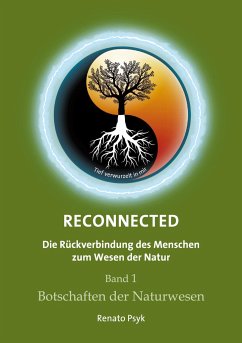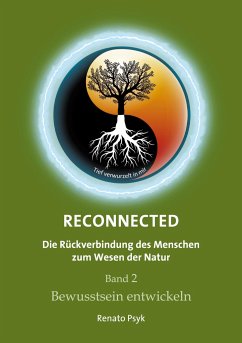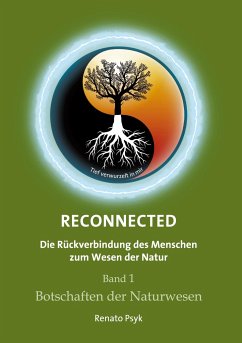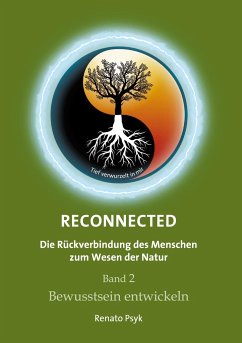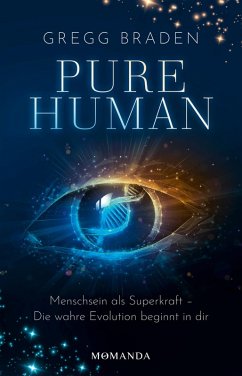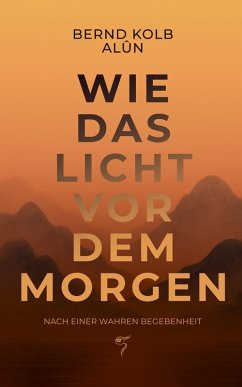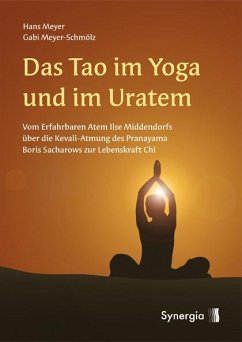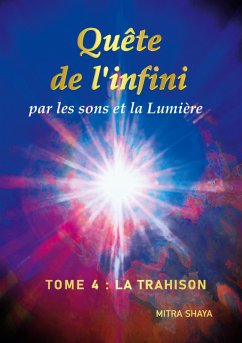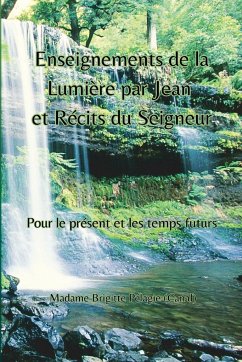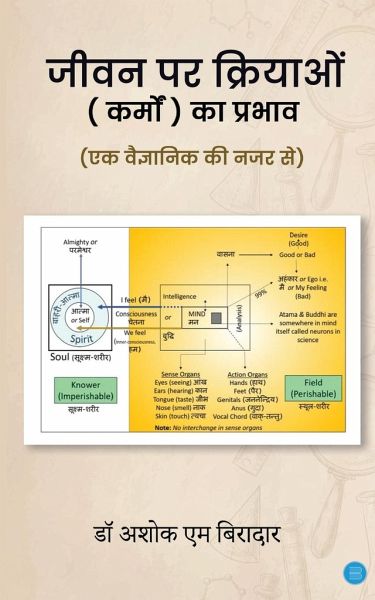
Jeevan Par Kriyaon (Karmo) ka Prabhav (Ek Vaigyanik ki Nazar Se)
Versandkostenfrei!
Versandfertig in 1-2 Wochen
17,99 €
inkl. MwSt.

PAYBACK Punkte
9 °P sammeln!
The main aim of this book is regarding good and bad actions (Karmas) and will be useful for educated, uneducated and common people. The main source book is Bhagwat-Geeta. The perishable materialistic body components, particularly mind and intellect are responsible for good and bad Karmas analysed in this book. The imperishable soul consists of pure self (Atama) and tinted spirit. The soul is responsible for the re-birth. In human beings the ego, desire, attachments are the main causes for unhappiness therefore, a separate chapter is devoted for egoness. In last two chapters spiritual life and ...
The main aim of this book is regarding good and bad actions (Karmas) and will be useful for educated, uneducated and common people. The main source book is Bhagwat-Geeta. The perishable materialistic body components, particularly mind and intellect are responsible for good and bad Karmas analysed in this book. The imperishable soul consists of pure self (Atama) and tinted spirit. The soul is responsible for the re-birth. In human beings the ego, desire, attachments are the main causes for unhappiness therefore, a separate chapter is devoted for egoness. In last two chapters spiritual life and super-consciousness or almighty or Gods attributes are high-lighted.





